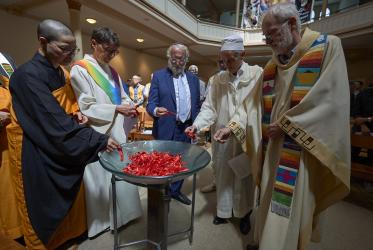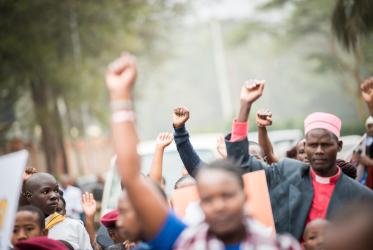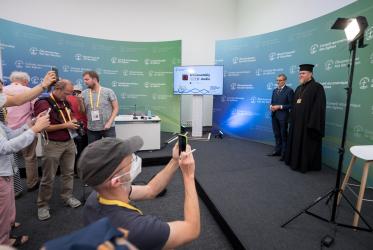Displaying 81 - 100 of 637
Faith communities in the HIV & AIDS response today
01 December 2022
WCC Eco School for North America postponed until 2023
14 November 2022
WCC offers health and healing workshop at All Africa Youth Congress
07 November 2022
Gracia Ross: “Responding to HIV is a moral obligation”
27 September 2022
Journalists reflect on telling the stories of the WCC 11th Assembly
23 September 2022
Christ’s Love (Re)moves Borders – GETI 2022 in images
13 September 2022
Health-Promoting Churches Volume III
Contextual Bible Studies on Health and Healing
04 September 2022
Towards an Ecumenical Theology of Companionship: PJP Series 3
A Study Document for the Ecumenical Pilgrimage of Justice and Peace
19 August 2022













